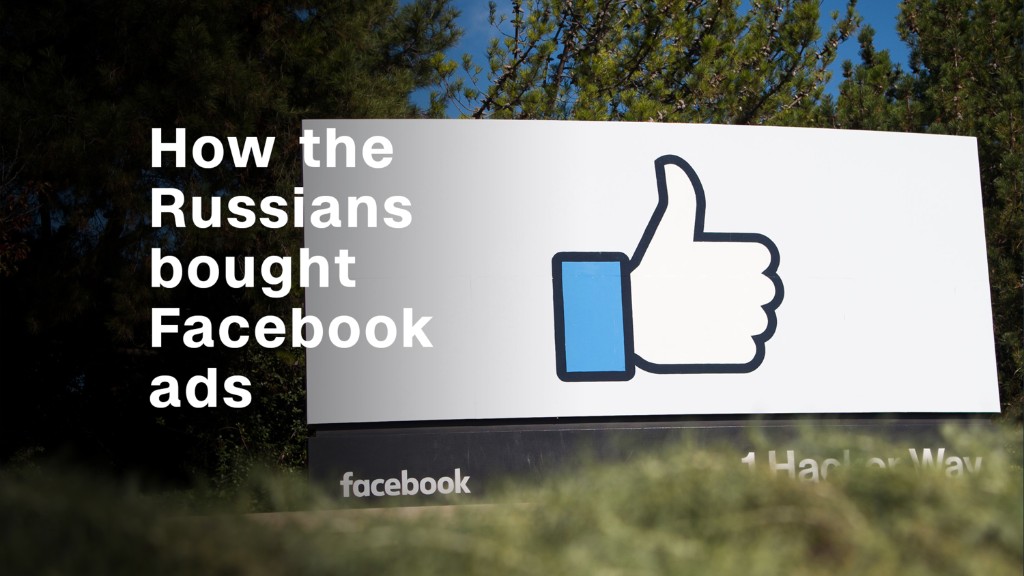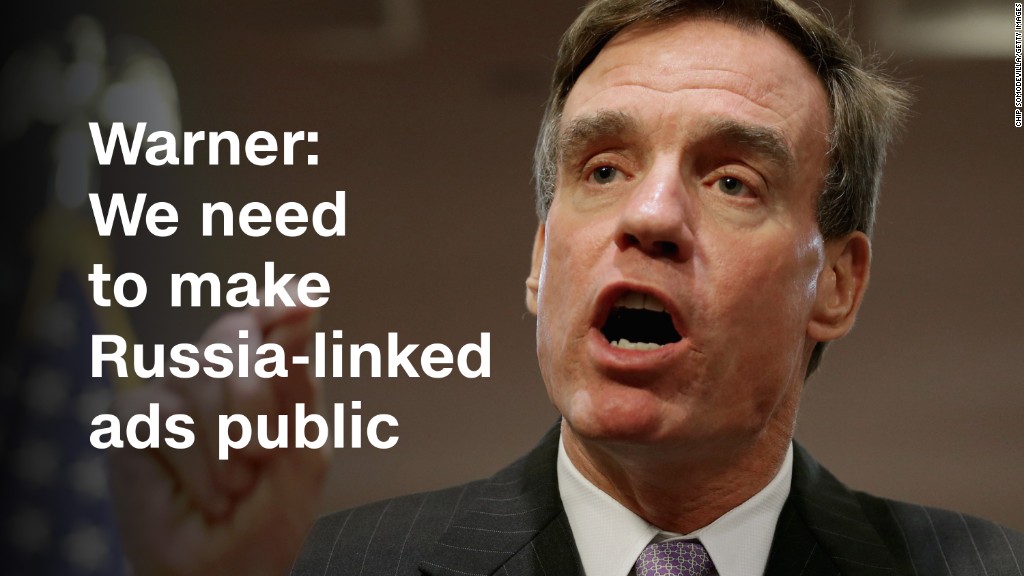
Facebook CEO Mark Zuckerberg announced last week that the social network would begin voluntarily requiring disclaimers on political ads that appear on the site. But in 2011 Facebook went to federal regulators to get an exception from a rule that would have forced it to do the same thing.
Federal election regulations state that political "communications placed for a fee on another person's website" must carry disclaimers stating that they are advertisements and who paid for them.
Facebook (FB) sought an exception to disclaimer regulations citing space constraints for its "character-limited ads." Lawyers for the company argued the ads were so small that a disclaimer would be impracticable, according to Federal Election Commission records reviewed by CNN.
Facebook argued, at the time, that ads on the platform were restricted to 160 characters. However, ads on Facebook have since evolved into sophisticated multimedia experiences. Advertisers can choose to sponsor videos, carousels of images and slideshows. Today, not all of Facebook's advertising options are character-limited.
Facebook asked for what is known as a "small items" exception. The FEC says small campaign paraphernalia like stickers and buttons do not need to carry disclaimers stating who paid for them.
The FEC also allows some political ads to avoid disclaimer rules where it would be impracticable -- the commission lists skywriting as an exception under this clause, for instance.
Related: Russian-bought Facebook ads sought to amplify political divisions
There was some precedent for Facebook's request.
In 2002, the FEC ruled in favor of Target Wireless, which argued that political ads sent by text message that were limited to 160 characters should not have to include a disclaimer.
In 2010, the commission ruled in favor of Google when it sought an exception for political ads on its platform, again arguing that such ads were character-limited.
The FEC, which is made up of six commissioners, normally split along partisan lines, voted in favor of the exception as Google (GOOG) had outlined in its request. Google said that the URL of the group paying for the ad would appear in the ad and that a full disclaimer would appear on the landing page once people clicked on the ad.
The FEC also invited other digital companies to seek similar advisory opinions.
The next year, represented by a legal team that included Marc Elias, a veteran campaign finance lawyer who was general counsel to Hillary Clinton's 2016 presidential campaign, Facebook asked for an exception that was less restrictive than Google's. (Elias was also part of the legal team that had represented Google in 2010.)
CNN has reached out to Elias for comment.
Related: Russia threatens to block Facebook

Facebook did not make any assurances on URLs or landing pages, instead requesting an outright exception -- no strings attached — that the Republicans on the commission had suggested could be possible when they considered Google's request.
The FEC's commissioners split 3-3 on Facebook's request and failed to issue an opinion.
When it comes to the FEC, though, indecision can be as important as a decision. For groups seeking exceptions, a deadlocked FEC is effectively an exception by proxy, Ann Ravel, a former FEC commissioner appointed by President Obama, told CNN.
"If a request for an exception splits 3-3 -- that is, if it does not get the four votes required for action, sophisticated lawyers in DC know that enforcement won't be brought against them because the three commissioners who voted for the exception will vote against enforcement," Ravel said.
With the tie vote in hand, Facebook proceeded with allowing political advertisements to be placed on its platform without disclaimers.
Trevor Potter, a former Republican FEC chairman who is now president of the Campaign Legal Center, a group that advocates for campaign finance law reform, said in a statement after Zuckerberg's announcement that Facebook had "pressured the FEC not to extend existing disclaimer requirements to online political ads, which helped create the secrecy that gave rise to foreign interference in the 2016 elections."
Related: I won't stop trying to expose fake Russia-linked Facebook ads, Mark Warner says
Zuckerberg's announcement came after Facebook revealed that it had sold $100,000 in ads to a Russian troll farm in the run-up to the 2016 US presidential election.
Lawrence Noble, a former FEC general counsel who is now also with the Campaign Legal Center and a CNN contributor, said that under the existing law, the onus is ultimately on campaigns, not the social media platforms, to ensure digital ads comply with federal disclaimer rules.
Noble said Facebook and Google likely sought exceptions "because they want to be able to sell these ads. If the FEC required something that the platforms didn't make available to advertisers, then they wouldn't be able to place the ad."
"However you would hope that the platform would facilitate any disclaimer requirements and would want people to know about the regulations as they placed an ad," he said.
Zuckerberg said on Thursday that political ads on Facebook will carry a disclaimer in the future. However, he didn't say how Facebook will define what is and is not a political ad, and Facebook has not elaborated further on that question.
Ravel suspects that Zuckerberg was referring only to ads bought by campaigns and PACs.
"We know that there is a whole universe of other activity that are actually political ads masqueraded as something else that I don't think Facebook is going to deal with," she said, referring to the fact that any Facebook user can set up a page and begin promoting content that is not explicitly a political ad, but is related to politics nonetheless, such as a news article or video about a candidate that does not explicitly encourage a vote for or against them.

Related: Trump says this is all a hoax. Mueller, Congress and Facebook disagree
Ravel also said she believes Facebook should be made to keep a record of and disclose political spending on its platform.
Last week, two Democratic senators, Amy Klobuchar and Mark Warner, sent a letter seeking co-sponsors for a bill that would require platforms like Facebook to keep a public record of all electioneering communications purchased by a person or group that spends more than $10,000.
An ad-buyer could reach up to almost 4 million Americans in 24 hours by spending $9,999, according to estimates on Facebook's ad platform reviewed by CNN.
A Facebook spokesman pointed CNN to Zuckerberg's statement last week, and declined to elaborate further.

